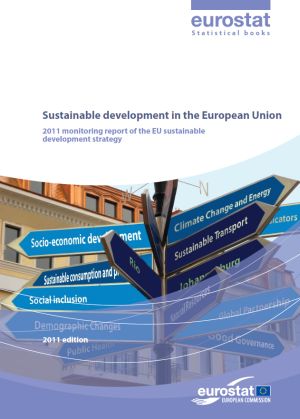In its Europe 2020 strategy, the EU has set itself the challenge of smart, sustainable and inclusive growth, including the shift to a low carbon economy in 2020. To map out ex-ante pathways for the low-carbon transition and to monitor Member States’ progress towards this objective, new monitoring tools are needed. Together with Belgian, British and Polish researchers, Ecologic Institute has identified and evaluated options for monitoring the structural change to a low-carbon economy.
This project explores the capabilities of current and potential monitoring methodologies. This is done with reference to the existing Lisbon Strategy and the monitoring methods put in place to monitor progress on its objectives, as well as the new objectives emerging from the Europe 2020 Strategy.
Project methodology
The project departs from a survey of the monitoring processes of the Lisbon Strategy as well as other monitoring mechanisms implemented for EU environmental policies, assessing their key strengths and shortcomings and their suitability for monitoring the transition to a low carbon economy. Furthermore, the project compiled a list of parameters that should ideally be monitored in order to give a complete and comprehensive picture of Member States’ success in moving towards a low-carbon economy. Against this ideal list of parameters, the project team reviewed different methods of monitoring the impacts of policies on the carbon intensity of the economy and on the pattern of economic development more generally. In doing so, particular focus was placed on economic models (partial and general-equilibrium) that would allow an analysis of structural change. Finally, the feasibility of applying these monitoring methods was discussed for the case of Poland.
Methods to monitor a low carbon economy
Carbon pricing features as a key tool in the Europe 2020 strategy. As a technology-neutral tool, carbon pricing is expected to be the central driver of the transformation to a low-carbon economy. However, it is unlikely that carbon pricing alone will be sufficient to bring about the structural economic that are needed for developing a low-carbon economy. In real life, several factors inhibit the effectiveness of carbon prices - including market imperfections, incomplete and asymmetric information, transaction costs and uncertainties. It is therefore necessary to consider a number of influences and factors beyond the carbon price, such as the volume of subsidies for both renewable energy and energy from fossil sources.
Case Study Poland
The methodological assessment of the Europe 2020 strategy monitoring is applied in a case study on the member state Poland. The aim of this application is to test the feasibility of the assessment framework and other proposals for the ex-ante quantification of effects.
The Ecologic Institute is conducting this analysis as part of a project team together with VITO, AEA Technology and NILU. Ecologic Institute contributed an analysis of existing monitoring frameworks, an overview of the future monitoring challenges arising from the EU 2020 strategy, and the list of parameters that would ideally be monitored to better understand the transition process. The project has been commissioned by the EU Commission’s DG Environment and is carried out under the ASPEN framework contract.



